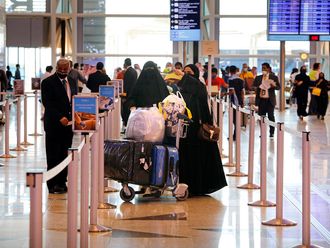Manama: Women are not banned from working as waitresses in restaurants in Saudi Arabia, the head of the Promotion of Virtue and the Prevention of Vice has said.
“However, they may work only in sections designated for women in line with an agreement to employ women in areas where the right conditions are provided,” Abdul Lateef Al Shaikh said, quoted by local daily Al Sharq on Wednesday.
Reports in Saudi Arabia this week said that women were told that their work in the hospitality service would be limited to the kitchen and that they could not work as waitresses.
Authorities in the kingdom have been pushing for a change of deep-rooted social rules that have traditionally banned women from taking up jobs in public places other than all girls’ schools and hospitals.
The move is motivated by the need to find jobs for thousands of Saudi female graduates and school leavers and to reduce dependency on millions of foreigners, mainly from Asian countries.
However, the authorities have been locking horns with conservatives in a crucial battle of determination.
A decision to force lingerie shops to employ only Saudi women was initially resisted by conservatives who refused to allow women to work and interact with strangers.
However, the government stood its ground although it made some compromises to ensure a “more adequate working environment for the saleswomen”.
“Shops that sell items for women can accommodate tens of thousands of Saudi women in case there are joint efforts to create employment opportunities that preserve women’s dignity,” Al Shaikh said. “The only conditions are that those who buy and those who sell the lingerie items, cosmetics and women’s clothes are women. Those who break the rules should be warned to follow them,” he said.
Several Saudi women welcomed the steps taken in favour of empowering women economically “no matter how tiny they may seem to others”.
Aisha Natto, a member of the Jeddah Chamber of Commerce and Industry (JCCI), was quoted by Arab News as saying that she could see “change coming in this country”.
“Since I am not from the new generation, I am witnessing the changes that are taking place with regard to Saudi women’s participation in society,” she said. “I am currently a JCCI member, but two years ago I was not even allowed to enter the building because of my gender. Today I am in a high position at the JCCI and own five companies,” she said.
King Abdullah Bin Abdul Aziz, in power since August 2005, is credited with the pro-women reforms.
Earlier this year, he helped women make political history in the kingdom by appointing 30 women to the 150-member Shura Council, the Riyadh-based advisory council. Reports about their work, proposals and debates have become regular features in the local media.









